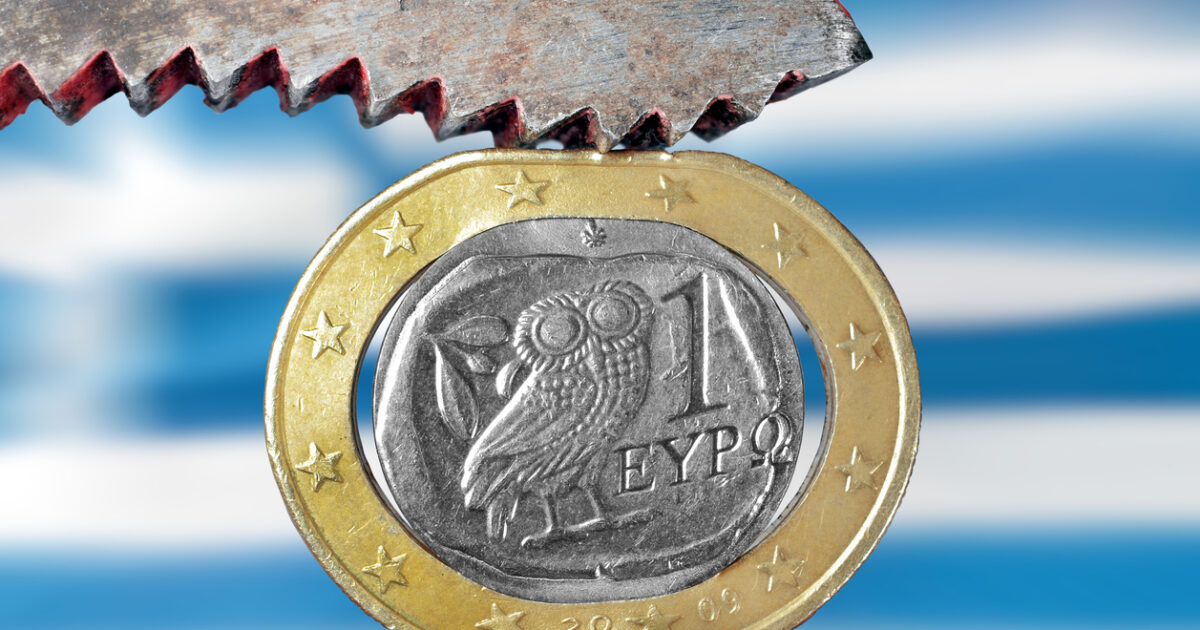With three loops (cost energyduties and NATO) tightened her ‘throat’ Greek economy And, at least in part, the economic staff’s plans for extensive new benefits in 2026, could be questioned, which could be announced by the TIF step next September.
The first -and more new (in a row … appearance) -loop for the Greek economy is none other than eruption of energy prices (oil, gas) after the new, more extreme, to date, escalation of war tension between Israel and Iran, which broke out last week.
The second loop is none other than duties 10% imposed by Trump on the EU since April 2, 2025.
The third loop is the proposal of NATO Secretary -General Mark Rutte for Increase in defense and infrastructure spending to 5% of GDP of Northern-Atlantic Alliance members.
All of the above factors create the ground for new waves of accuracy, reduction of exports, and social expenses …
In more detail:
1. Explosion of oil and gas prices
From Thursday, June 12, 2025, when Israel’s attack on Iran began until Friday, June 13, 2025 The price of crude oil has increased from $ 68 a barrel to 73 euros (or about 7%).
From June 12 2025, too, The price of European gas has increased by close by 4.5%.
The above means more expensive oil and electricity.
If this upward trend continues in the coming months, then one of the two positive “data” for the European economy is overthrown, after the Trump initiative has erupted: Hope to reduce prices (the other positive “value” was the increase in prices).
This prediction to reduce inflation was on the one hand at low energy prices (due to recessionary pressures on the world economy and especially in the US) and on the other in the threatening large invasion of cheap Chinese products in Europe after the “door” shown by Trump.
Without eliminating the above factors (that is, recessionary pressures in the US and the risk of a new invasion of Chinese products), the hope of reducing inflation or even deflation begins to “melt” in the flames of missile attacks between Tel Aviv and Tehran …
And at a time when the ECB longed to continue to reduce its interest rates in order to breathe the European economy, especially in view of the implementation of the announced new mass investments in defense, as they also require mobilizing private (loan) capital, which is favored by low costs and not borrowing …
A possible return return to inflation to the EU -and in Greece (especially as recently the gap has been expanded from Europe’s average) also means a new reduction in the actual income of the country’s inhabitants, while all the upheaval in the southeastern Mediterranean (part of which is the other) (tourist) cancellations are also expected from countries such as Israel…
2. The sure… uncertainty of duties
The eruption of energy prices (along with all the suffering it brings) comes to sit on the damage already done by the International Target War that has launched here 2 ½ months with a centered Washington.
The first signs are already visible: the EU’s trade surplus in April 2025 reached the threshold of annihilation, while Greek exports declined by nearly 15%, which is expected to hit the European and Greek economy in the second quarter of 2025.
And all this with US duties only 10%against the EU from April 9, 2025. The original Trump announcement spoke of 20%, and later threatened with … 50%.
As Greek export circles have explained to newsit.gr, the 10% rate is “absorbable”.
However, the same is not the case for any additional percentage and above all in a possible extension of uncertainty.
This extension is not at all unlikely, as according to leaks in the international press last week, an extension of (de facto almost frozen) US -EU negotiations are being “played” for after July 9, when the three -month Trump extension ends.
3. The sure increase in defense spending and the unknown (yet) time targeting
While inflation threatens real income (and thus private consumption) and duties exports – and all tax revenue together – Greece, as well as all European NATO countries, are expected by the end of this month to agree to increase their defense spending.
As NATO Secretary -General Mark Rutte said during his visit to Sweden last Friday, June 13, 2025, the average defense spending in Europe and Canada is… 1.9% of GDP.
Rutte’s stated proposal provides for an increase in expenditure on equipment and defense infrastructure to 5% of GDP.
Rute therefore predicts more than double defense spending in the EU. Their percentage in Greece is 2.5%.
5% should be taken for granted, while “until” remains open. From Sweden, Mr. Rutte said characteristically, “I submitted proposals, but what I published is the percentage, which is 5%, 3.5% of basic defense spending and then the 1.5% focusing on defense and security costs, including the development of the defense industrial base and the preparation of the whole society, But I am not going to reveal my thoughts on the expiration date, because of course, these are consultations and are now taking place among the allies. “.
The most different suggestions have fallen on the table: by 2028, until 2030, 2032 or even by 2035!
As for Greece, the new EUR 25 billion equipment program has a horizon in… 2037.
It is obvious that the earlier the bar for the 5%comes, the greater the pressure on the EU government budgets – of course Greece – for higher government borrowing, higher tax revenue and higher cuts in social spending.
